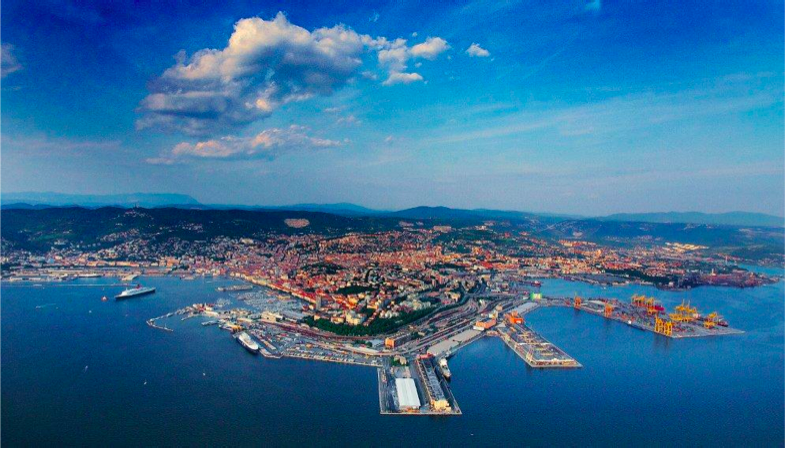Article by Paolo G. Parovel, originally published on the paper edition of La Voce di Trieste, issue of October 29th, 2013: LINK
***
Italian antidemocratic policies destabilize Question Trieste
[Links, note, and unofficial translation: SV]

Trieste, 29 October 2013. – Central and local bodies of the Italian Republic and of its Government are reacting violently, both with international violations and threatening with repression the increasing legal initiatives of a significant part of the people of the city and international Free Port of Trieste. Initiatives which seek the complete re-establishment of the politic, economic, and fiscal rights of the Free Territory of Trieste, established in 1947 as UN Member State and, since 1954, entrusted to the Italian Government under a special trusteeship mandate.
In July 2013 the Free Trieste Movement – FTM, which represents this part of Trieste’s people, addressed an «Act of complaint and notice of default» to Italian and international authorities, first codifying its legal claims and requesting the UN’s intervention.
[Note: the original version mentioned the UN Trusteeship Council. However, that is only in charge of ordinary trusteeship mandates. The special trusteeship mandate over the Free Territory is specifically under the UN Security Council’s authority].
Indeed, the FTM claims that the administering Italian Government is illegally forcing on the administered Free Territory the sovereignty and unfavorable taxation of the Italian State, as well as suffocating the international Free Port of Trieste for the advantage of Italy’s ports.
The FTM’s document officially renounces all claims against Slovenia and Croatia, as well as clarifying that, for Trieste, the re-establishment of the rule of law would promptly develop the expected international free trade zone, industry, and finance, for the advantage of the international community, of Trieste, but also of the neighbor areas in Italy, Slovenia and Croatia, currently affected by the economic crisis.
However, the addressed local and national Italian authorities refused the requested peaceful and constructive dialogue about this legal, economic, and political question. Instead, locally they are reacting with an escalation of counter-propaganda and threatening severe repression, claiming that the Free Territory of Trieste has never existed, as well as attempting to involve Slovenia and Croatia in the matter.
The nationalism of the local Italian authorities is such that their October 26th [2013] demonstration was attended by extremists, who accuse the US and the UK of terrorism and massacres. In truth, the US and the UK established Trieste’s first Government in 1947, and in 1954 they sub-entrusted it to the temporary civil administration of the Italian Government.
On October 28th the escalation of political threats of repression reached a critical level with the release of judgment No. 530/2013 of the Regional Administrative Court for Friuli Venezia Giulia in Free Trieste’s appeal against the summoning of Italian elections.
Indeed, the judgment doesn’t just deny the Free Territory’s existence: at points 21 to 25.1 it labels as “subversive” the Movement’s very legal actions, declaring that those must be forbidden and punished as attempt to undermine the sovereignty and national unity of the Italian State (crimes punished with no less than 12 years in prison), as opinion crimes, and as incitement.
Free Trieste announces that it is impugning the decision before the Court of second instance, and eventually before international Court. The Movement comments the threats of repression as «unacceptable for any democratic Country of the Euro-Atlantic area, as the Free Territory of Trieste itself is» and adds that Trieste owes gratitude to the US and to the UK for their correct administration, from 1945 to 1954.
In view of all of this, according to our analyses, destabilizing risks arising from Question Trieste do not depend on the legal actions or economically based requests of the Free Trieste Movement. Rather, they derive from the unsuitable negative and repressive behaviors of the administering Italian Government and of its local authorities.
Again, according to our analyses, those harmful and useless actions aren’t inspired by meditated political choices of Italian national authorities. Rather, they are influenced by a local system of corrupt parties and Italian speculators whose interests conflict with the development of Trieste’s international Free Port and free trade zones.
Further, detailed analyses are being released on La Voce di Trieste No. 34, on sale November 5th, 2013.
Note: La Voce di Trieste No. 34 is available online for free HERE. If possible, please consider supporting La Voce di Trieste, the only local independent investigative newspaper, with a donation.
